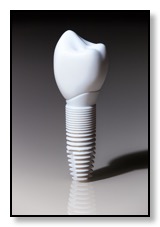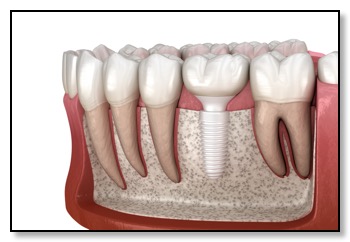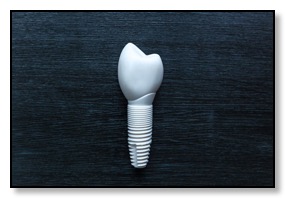
Dental implants are commonly used to replace missing teeth, and ceramic and titanium implants are the two most widely used types. While titanium implants have been the standard for many years, ceramic implants are increasingly preferred due to their superior aesthetics and lack of metal allergy triggers.
While Ceramic implants do have some clinical limitations, ceramic implants have other advantages over their metal counterparts.

One major advantage of ceramic implants is their resistance to corrosion and triggering bacterial bone loss over time, which is a possible but significant drawback of titanium metal implants. Ceramic dental implants have also significantly improved mechanical strength and material consistency over time, making them a desirable option.

In addition to patient preference, ceramic implants may be used in specific cases where the restorative doctor requests or even requires this material. Pure or other ceramic implants offer a better color match than metal implants, which can be more desirable for patients. Since the base of the implant, where the crown meets the gum line, is white ceramic, there are almost no grey shadows or discoloration with ceramic implants. This also allows for some natural recession of your gums while maintaining the white tooth color. Studies in Europe show that ceramic implants have extremely high success rates, and although the majority of our implants are still titanium, the use of ceramic implants is increasing. All Ceramic Dental Implants are mostly placed on bicuspid teeth and molars. Often, anterior implants will still require titanium due to the thin bone and more difficult abutment angles.

For example, ceramic implants may not be an option in cases where the underlying bone is angled off-center. It is best to set up a consultation with our doctor to determine if the ceramic implants are right for your situation.

However, limitations such as abutment placement precision, nerve location, and occlusion angles should be considered when determining the ideal type of implant for each patient. We will evaluate your clinical data and any medical risks and concerns to help you better understand if ceramic implants are right for you.
» Oral Surgeons and Dental Implants
» All Ceramic Dental Implants
» Dental Implants, Bridges, Crowns, & Partial Dentures
» Bone Grafting & Sinus Lifts
» Second Opinions for Dental Implants
» Cracked Tooth Syndrome
» Frequently Asked Questions about Dental Implants
» How to calculate your dental insurance copays?
» Before and After photos of our patients
» Z-SYSTEMS® All Ceramic Dental Implants
Have questions about all ceramic dental implants versus dental implants?
email or call us: (650)-583-5880
We'd love to hear from you.
📩
Send us Email
📅
Request Appointment